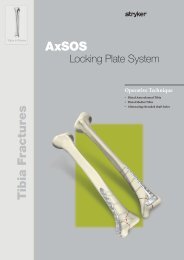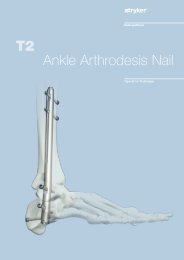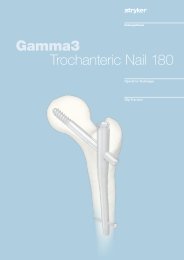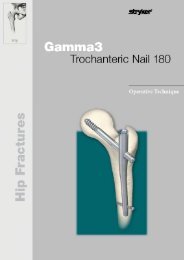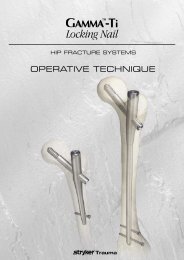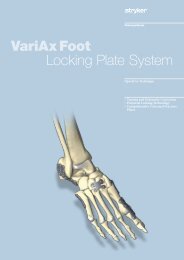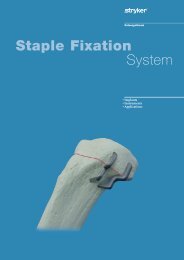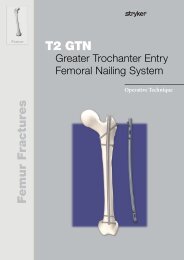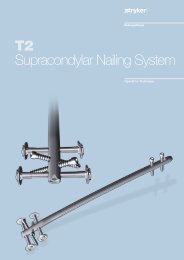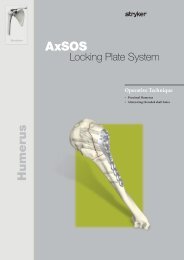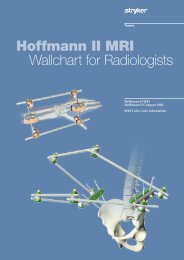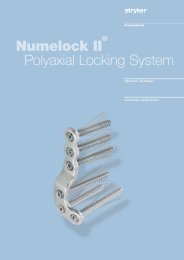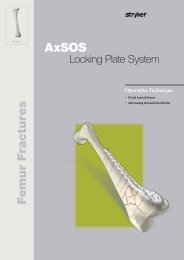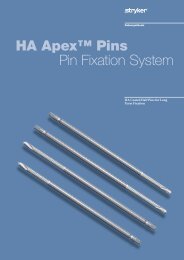T2 Humeral Nailing System Operative Technique - Stryker
T2 Humeral Nailing System Operative Technique - Stryker
T2 Humeral Nailing System Operative Technique - Stryker
Create successful ePaper yourself
Turn your PDF publications into a flip-book with our unique Google optimized e-Paper software.
<strong>Operative</strong> <strong>Technique</strong> – Retrograde <strong>Technique</strong><br />
Static Locking Mode<br />
Static Transverse Locking Mode<br />
In unstable or comminuted fractures,<br />
the nail should be used as a standard<br />
interlocking nail. Static locking will<br />
help maintain the length of the nail<br />
and the rotational stability of the fracture.<br />
The Short Tissue Protection Sleeve<br />
together with the Short Drill Sleeve<br />
and the Short Trocar are positioned<br />
through the static locking hole on the<br />
Target Device. A small skin incision<br />
is made and the assembly is pushed<br />
through, until it is in contact with the<br />
posterior cortex of the humerus.<br />
Note:<br />
Especially in the proximal<br />
humerus, use image intensification<br />
to help ensure the Tissue<br />
Protection sleeve is flush with the<br />
cortex or you could lose 1−2mm of<br />
screw measurement accuracy.<br />
The Trocar is removed, while the<br />
Tissue Protection Sleeve and the Drill<br />
Sleeve remain in position.<br />
For accurate drilling and easy determination<br />
of screw length, use the<br />
center-tipped Ø3.5 × 230mm calibrated<br />
Drill (1806-3540S). The Drill is forwarded<br />
through the Drill Sleeve and<br />
pushed onto the cortex.<br />
Caution:<br />
Make sure the Tissue Protection<br />
Sleeve/Drill Sleeve Assembly is<br />
seated on bone prior to selecting<br />
final screw length.<br />
After drilling both cortices, the screw<br />
length may be read directly off of the<br />
calibrated Drill at the end of the Drill<br />
Sleeve (Fig. 66 and 67).<br />
Note :<br />
The position of the end of the<br />
Drill as it relates to the far cortex<br />
is equal to where the end of the<br />
screw will be. Therefore, if the end<br />
of the Drill is 3mm beyond the far<br />
cortex, the end of the screw will<br />
also be 3mm beyond.<br />
36<br />
50mm<br />
Fig. 66<br />
Fig. 67<br />
50mm



